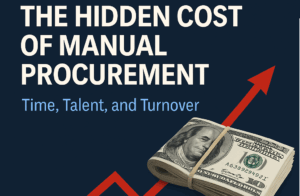Supply chain optimization is a critical endeavor for businesses seeking to streamline operations, minimize costs, and enhance overall efficiency. As supply chains become increasingly complex and interconnected, traditional computing methods face limitations in solving multifaceted optimization problems. Enter quantum computing – an emerging field of computing that holds the potential to revolutionize supply chain optimization by tackling intricate challenges with unprecedented speed and power. This article delves into how quantum computing is reshaping supply chain strategies, with a special focus on the manufacturing sector, real-world examples, and hard statistics.
The Limitations of Classical Computing in Supply Chain Optimization
Modern supply chains involve a labyrinth of variables – suppliers, manufacturers, distributors, transportation routes, inventory levels, demand forecasts, and more. Traditionally, supply chain optimization has relied on classical computing methods (such as linear programming, heuristics, and simulations) to analyze and model these variables. While effective to a certain extent, classical computing struggles with the sheer scale and complexity of today’s supply chains. In practice, many companies still rely on spreadsheet-based planning and siloed systems; in fact, 79% of businesses use spreadsheets for supply chain planning, and over half admit they cannot fully evaluate trade-offs across departments under current methods. This points to a fundamental limitation: classical tools often require simplifying assumptions and cannot exhaustively explore complex decision spaces in reasonable time.
One notorious example of complexity is the traveling salesman problem, which is analogous to optimizing delivery routes. The number of possible routes grows factorially with the number of stops – with 10 stops there are ~3.6 million possibilities, and 40 stops explode into 40! (an unfathomable 8.15×10^47) possible routes. Even supercomputers struggle to brute-force such problems. As supply chain networks grow, finding globally optimal solutions becomes exponentially more challenging and time-consuming for classical algorithms. Often, suboptimal but “good enough” solutions are used due to computational limits.
Quantum Computing: A New Frontier
Quantum computing operates on the principles of quantum mechanics, utilizing quantum bits (qubits) instead of classical bits to perform computations. This fundamental shift empowers quantum computers to process an immense number of possibilities in parallel, enabling them to solve complex problems at speeds previously thought impossible. Unlike a bit that is either 0 or 1, a qubit can exist in multiple states simultaneously (a property called superposition), and multiple qubits can be entangled such that they handle combinations of states together. In practical terms, this means a quantum computer can explore many potential solutions at once rather than one-by-one as classical computers do.
The field has advanced rapidly. In just a few years, quantum processors have grown from 20-something qubits to over 400 qubits, with expectations of surpassing 1,000 qubits by 2024. Google famously demonstrated a quantum processor completing in 200 seconds a task that they estimated would take a classical supercomputer 10,000 years. While that task was esoteric, it illustrates the order-of-magnitude speedups quantum hardware promises. This raw computational power comes with caveats – current quantum machines are error-prone and not yet at “full scale.” Nonetheless, the trajectory is clear: quantum computing is rapidly transitioning from theory to practical tool. Crucially, certain problem types prevalent in supply chain management (like combinatorial optimization, pattern recognition, and large-scale simulation) align well with quantum algorithms being developed.
How Quantum Computing Can Optimize Supply Chains
Quantum computing holds particular promise for a range of supply chain optimization tasks. It won’t replace classical computers entirely, but it can act as an accelerator or a specialized tool for the hardest problems. Key areas where quantum approaches can augment supply chain efficiency include:
- Expedited Combinatorial Optimization: Many supply chain challenges are combinatorial in nature – from vehicle routing and delivery scheduling to container loading and production planning. Quantum computers excel at evaluating countless combinations simultaneously to find optimal or near-optimal solutions faster. For example, Accenture reports that quantum-powered route optimization can consider millions of real-time data points (traffic, weather, etc.) to calculate the fastest routes for an entire fleet, reducing total mileage and improving on-time delivery rates. This parallelism means quantum algorithms (such as QAOA, the Quantum Approximate Optimization Algorithm) can solve routing and scheduling problems that would overwhelm classical solvers, or else produce an answer in minutes versus hours or days.
- Improved Demand Forecasting: Accurate demand forecasting is vital for manufacturers and retailers to align production and inventory with market needs. Quantum computing’s ability to analyze vast datasets and complex patterns can boost forecasting accuracy. Quantum machine learning algorithms are being explored to detect subtle demand signals and correlations that classical analytics might miss. By considering numerous variables (historical sales, economic indicators, weather, social media trends, etc.) in parallel, quantum-enhanced forecasts could better anticipate demand spikes or dips. In practice, better forecasts via quantum means smoother production scheduling and fewer last-minute logistics crises. While this is an emerging area, early research indicates quantum models might extract insights from data that improve forecast accuracy and responsiveness of the supply chain.
- Network and Route Optimization: Supply chains often comprise intricate networks with multiple nodes (factories, warehouses, distribution centers) and transport links. Optimizing such networks – deciding optimal facility locations, shipping routes, or material flows – is enormously complex. Quantum computers can rapidly evaluate network design scenarios or shipping routes. A striking case occurred at the Port of Los Angeles, America’s busiest port, which turned to quantum computing to help untangle a pandemic-induced container backlog. By using a quantum optimization engine to re-sequence container moves and truck dispatch timing, the port moved higher volumes of cargo more quickly than with conventional planning. Following suit, the Port of Rotterdam in the Netherlands has launched a project to adopt quantum technology for enhancing port operations. In the automotive industry, BMW has partnered with quantum tech firms to optimize its supply network – for instance, improving parts purchasing by matching the right supplier to production schedules at the lowest cost, a complex multi-variable decision problem. These examples show that quantum-assisted optimization can find efficiencies in supply chain networks that elude classical methods.
- Inventory Management: Balancing inventory levels to meet demand without overstocking is another optimization puzzle. Quantum algorithms can optimize inventory by simultaneously analyzing factors like seasonal demand patterns, lead times, and production constraints. The goal is to minimize holding costs and avoid stockouts by finding the ideal stock levels across thousands of products and locations in real time. Early indications are that quantum computation could handle the high-dimensional data involved in inventory optimization better than classical heuristics. By considering a broader set of stochastic scenarios (e.g. demand surges, delays) at once, quantum models may recommend inventory buffers that are lean yet resilient. In short, businesses could maintain leaner inventories without risking stockouts or overstocks – a key efficiency booster for manufacturing supply chains. As one industry review noted, the ability to ingest vast data sets for decision-making will be a major differentiator in supply chain performance, and this is exactly where quantum can shine.
- Multi-Objective Optimization: Supply chain decisions usually involve trade-offs among conflicting objectives – cost, speed, service quality, and increasingly, sustainability. Classical approaches struggle to optimize for multiple objectives at once; they often require simplifying to a single objective or running repeated what-if analyses. Quantum computing’s computational prowess enables simultaneous optimization of multiple objectives. This means a quantum algorithm could present a set of Pareto-optimal solutions that balance cost, delivery time, and carbon emissions, for example. Businesses can then choose the solution that best fits their strategy (e.g., minimal cost for a given service level and carbon cap). There have already been promising signs of this in pilot projects. In one study, quantum optimization of taxi dispatch yielded a 30% reduction in vehicles needed for the same service level – translating to lower operational cost and lower emissions. In that scenario, fewer taxis were able to handle the demand by being routed more efficiently, which the researchers noted could slash the carbon emissions associated with those trips. Quantum solutions can inherently consider such dual outcomes. As sustainability becomes a key supply chain objective, quantum computing may help optimize logistics not only for profit, but for environmental impact (e.g., minimizing total fuel consumption or maximizing use of green transport modes while still meeting delivery targets).
Real-World Quantum Supply Chain Initiatives in Manufacturing and Logistics
Manufacturing companies and logistics providers are actively experimenting with quantum computing to solve complex supply chain problems. Several pioneers across industries have launched pilot projects or even deployed early quantum solutions. Below we highlight real-world examples – especially in manufacturing and related supply chain operations – that demonstrate quantum computing’s potential:
- Automotive Manufacturing (Volkswagen & DENSO): Global automotive companies have been early adopters of quantum optimization. Volkswagen, for instance, partnered with D-Wave (a quantum computing company) to test solutions for factory efficiency and traffic management. Using a quantum annealing system, Volkswagen achieved significant efficiency improvements in both its vehicle routing logistics and even in a car painting assembly line on the factory floor. Although details were not fully disclosed, the quantum approach optimized the sequence of painting cars (a complex scheduling task with many constraints) and the routing of delivery trucks, resulting in measurable time and cost savings. Likewise, DENSO – a major automotive parts manufacturer – has run multiple quantum pilot studies focused on transportation optimization. In one project, DENSO researchers used a hybrid quantum algorithm to optimize taxi dispatch in Kyoto, Japan: the quantum-derived solution served the day’s taxi requests with just 43 vehicles instead of 62, a 30% reduction in fleet size needed. In another study in Bangkok, a quantum route optimizer enabled a small fleet of 18 vehicles to cover the same set of rider requests while cutting total driving distance and time by nearly 10%. These trials illustrate how quantum computing can streamline routes and schedules in manufacturing logistics, which in turn reduces fuel, labor hours, and vehicle wear-and-tear. DENSO is now also exploring quantum-enhanced multi-modal transport planning – for example, routing passengers or goods through combinations of cars, shuttles and buses in the most efficient way – something very difficult to optimize with classical methods.
- Automotive Supply Chain Design (BMW): The BMW Group has been proactively researching quantum applications for its manufacturing and supply chain. In a proof-of-concept, BMW applied a recursive QAOA quantum algorithm to a typical parts allocation problem (a variant of the “partition problem” in supply chain optimization). The quantum solution’s results were comparable to a leading classical heuristic algorithm, demonstrating feasibility even at this early stage. More recently, BMW has collaborated with quantum computing startups to accelerate parts design and development through quantum simulation. Faster digital testing of car parts can shorten production cycles. BMW is also working on quantum approaches for procurement and supplier selection – essentially using quantum optimization to match each component with the best supplier considering price, quality, and production timelines. This kind of complex sourcing decision (involving millions of pricing and capacity combinations across a supply network) could be handled more holistically by quantum algorithms, potentially reducing procurement costs while ensuring supply continuity.
- Consumer Goods and Retail (Coca-Cola & Pattison): Manufacturers in the consumer goods sector are likewise tapping quantum computing. A notable example is Coca-Cola Bottlers Japan, which tested quantum computing to optimize its distribution network for replenishing over 700,000 vending machines across Japan. This massive logistics problem involves scheduling deliveries and routing trucks to restock a vast number of vending locations efficiently. The quantum pilot aimed to improve service turnaround times – ensuring vending machines are refilled faster – while cutting down total travel distance for the delivery fleet. Although detailed results haven’t been published, the fact that Coca-Cola undertook this quantum trial signals the technology’s perceived value in large-scale distribution. In the retail grocery arena, Pattison Food Group (a major food distribution company in North America) has gone a step further by deploying a quantum-powered application in production. Pattison implemented an AI-driven “auto-scheduler” for supply chain tasks using D-Wave’s quantum technology, and saw dramatic efficiency gains. What used to require 80 labor-hours of planning per week was reduced to just 15 hours – an 80% time savings in scheduling workflows. This quantum scheduling tool optimizes how orders, deliveries, and staffing are arranged, and it continuously adjusts plans as conditions change. The result is not only a huge reduction in manual planning effort, but also more responsive and cost-effective operations (as the schedules it produces are closer to optimal). Such real-world success stories underscore that quantum computing is moving beyond theory into practical supply chain solutions.
Quantum computing is being applied to complex logistics problems, from port operations to last-mile delivery optimization. Beyond manufacturing and consumer goods, other sectors and logistics providers are exploring quantum for supply chain gains. The Port of Los Angeles example mentioned earlier was enabled by a quantum software developer (SavantX) using a D-Wave quantum annealer to optimize container placements and scheduling at a shipping terminal. The outcome was improved container flow and reduced congestion at the port, a critical global logistics hub. Major oil & gas companies like ExxonMobil have also tested quantum algorithms to solve complex routing of ships and tankers at sea, where they found quantum approaches could handle more variables and yield more accurate routes than classical models. Even Toyota experimented with quantum computing to optimize traffic signal control in urban areas, aiming to alleviate traffic jams – a solution that could be applied to improve delivery truck travel times. While many of these projects are still in pilot or proof-of-concept stages, they span the end-to-end supply chain from production to last-mile delivery. They demonstrate a global interest: from Asia to Europe and the Americas, companies are racing to understand how quantum technology can give them a competitive edge in supply chain efficiency.
Market Outlook and Industry Adoption
The convergence of quantum computing and supply chain management is not just hype – it’s backed by significant investment and growing market projections. Globally, the quantum computing market (across all industries) generated roughly $1.07 billion in 2024 and is expected to grow to $2.2 billion by 2027, reflecting an annual growth rate over 25%. Over the longer term, a McKinsey analysis projects the value of quantum computing could reach $700 billion by 2035 as the technology matures into mainstream use. Focusing on manufacturing and supply chain applications, the growth is equally striking. The quantum computing in manufacturing market (which includes use cases like supply chain logistics optimization, production scheduling, and materials simulation) was estimated around $500 million in 2024 and is forecast to leap to $5 billion by 2033 – roughly a tenfold increase in under a decade, representing a ~30% CAGR. This anticipated boom is driven by the clear value proposition of quantum for optimization and the increasing urgency for supply chains to become more resilient and efficient.
Huge investments are fueling this progress. In 2024, private venture capital funding into quantum startups hit a record $2.6 billion, and governments worldwide poured over $40 billion into quantum research initiatives. These investments aim to accelerate practical quantum solutions in various sectors, including logistics, manufacturing, and transportation. An industry survey by IDC identified relevant quantum use cases in at least 11 different verticals by 2025 – including manufacturing, distribution/logistics, chemicals, finance, and more. In the supply chain domain, nearly all the identified use cases involve complex optimization problems (routing, scheduling, risk analysis, etc.). To make these capabilities accessible, major tech companies have launched cloud-based quantum computing services. IBM, Google, Microsoft, Amazon, and others offer quantum-computing-as-a-service platforms where businesses can experiment with quantum algorithms without owning a quantum computer. The market for Quantum Computing as a Service (QCaaS) is projected to reach $26 billion by 2030 at the current pace of enterprise adoption. This means even mid-sized firms around the globe could tap into quantum optimization via cloud APIs in the near future, democratizing access to this cutting-edge power.
Importantly, industry leaders are not waiting on the sidelines. Many Fortune 500 companies are already taking steps to become “quantum-ready,” building internal teams and partnerships to explore quantum solutions. For example, aerospace and automotive firms have run hackathons and challenges to solicit quantum approaches to their supply chain problems. Software startups specializing in quantum optimization are collaborating with logistics giants on pilot projects. This ecosystem of collaboration between quantum scientists, software developers, and supply chain experts is rapidly expanding. The consensus among these early movers is that quantum computing can be a game-changer for supply chain efficiency, and those who master it first will gain a significant competitive advantage in cost and agility.
Challenges and Considerations
While the potential benefits of quantum computing in supply chain optimization are promising, there are several challenges and practical considerations to address before it achieves widespread deployment:
- Hardware Limitations: Today’s quantum hardware is still in its infancy. Most quantum computers have dozens or a few hundred qubits at most, and they are prone to errors (“noise”) due to decoherence and other quantum effects. For truly large-scale supply chain problems, more stable and scalable hardware is needed. Engineering advances are underway – for instance, IBM’s roadmap targets systems with over 1,000 qubits in the next year and beyond – but we are not yet at the point of handling millions of variables with full accuracy. Near-term quantum computers often produce approximate solutions or require hybrid quantum-classical methods. Scaling up and improving the stability (error rates) of quantum processors is crucial for tackling industrial-scale optimization. It may be a few more hardware generations before quantum computers can routinely solve, say, an entire global manufacturing network optimization in one go.
- Algorithm Development and Expertise: Developing quantum algorithms tailored to specific supply chain problems requires highly specialized knowledge at the intersection of quantum physics and operations research. There is a learning curve to formulating a business problem (like truck routing or inventory optimization) into a form that a quantum solver can accept (often as an energy minimization problem for quantum annealers, or as a large Hamiltonian for gate-model quantum computers). This necessitates collaboration between quantum scientists and supply chain domain experts. Such collaborations are still relatively rare. Additionally, the talent pool of people who understand quantum computing deeply is limited – companies often struggle to hire or train experts with quantum programming skills. On a positive note, many universities are now offering quantum computing programs, and open-source toolkits are emerging to help bridge the gap. But as of 2025, the availability of skilled professionals remains a bottleneck. Companies venturing into quantum will likely need to partner with quantum software firms or invest in internal R&D to develop useful algorithms for their particular use cases.
- Data Integration and Security: Implementing quantum computing in supply chain management isn’t just about the algorithm – it also involves integrating with existing IT systems, data streams, and workflows. Businesses will need to feed real-time supply chain data into quantum models and then act on the results within their operations. Ensuring compatibility and smooth integration with classical systems (through hybrid architectures) is a significant undertaking. Moreover, the advent of powerful quantum computers raises security considerations. Quantum algorithms (like Shor’s algorithm) have the theoretical ability to break current encryption methods, which means sensitive supply chain data could be vulnerable if intercepted by a quantum-capable adversary. This is driving interest in quantum-safe encryption and communication methods for supply chain IT systems. Companies and supply chain technology providers must plan for a future where data security protocols are upgraded to resist quantum decryption (using techniques such as quantum key distribution or post-quantum cryptography). In the interim, any use of cloud-based quantum services for supply chain optimization must ensure that proprietary data (like supplier contracts, customer demand, etc.) is protected through encryption and legal safeguards.
- Cost and Accessibility: Cutting-edge technology often comes with high costs. Quantum computing hardware is expensive to build and maintain, and expert consulting isn’t cheap either. Right now, only large corporations, well-funded startups, or government labs can afford dedicated quantum computing teams. This raises the concern of a potential “quantum divide” where companies with resources gain an edge while smaller firms are left behind. However, the rise of cloud-based offerings is mitigating this: businesses can experiment with quantum computing on platforms like Amazon Braket, Microsoft Azure Quantum, or IBM Quantum without huge upfront investment. These services operate on a pay-as-you-go (or research subscription) model, making quantum trials more accessible. Still, the return on investment is a consideration – quantum solutions must prove that their improvements (e.g. cost savings from a more efficient supply route) justify the expense of development and execution. As the technology matures and standardizes, costs are expected to come down. For widespread adoption, user-friendly software, lower costs, and clear ROI examples will be key. Industry consortia and government programs are also helping subsidize early projects to ensure even smaller players can explore quantum opportunities.
Conclusion
Quantum computing holds the promise of transforming supply chain optimization by solving complex problems that are beyond the full reach of classical computing methods. Early adopters in manufacturing, logistics, and retail have already demonstrated that quantum approaches can yield faster, more efficient solutions – from cutting delivery routes by double-digit percentages to saving weeks of planning time each year. As the technology advances and becomes more accessible, businesses that harness the power of quantum computing stand to gain a significant competitive advantage in the marketplace. By leveraging the inherent parallelism and computational might of quantum computers, supply chains can be optimized for higher efficiency, lower costs, and improved agility and resilience.
That said, it’s important to maintain realistic expectations. We are in the early stages of the quantum era. For most organizations, the near-term strategy will be to pursue hybrid solutions (combining classical and quantum computation) and targeted pilot projects. The integration of quantum computing into day-to-day supply chain management will be a gradual process – but one that has already begun. Forward-thinking companies should start preparing now by building quantum expertise, partnering with technology providers, and identifying high-value optimization problems that align with current quantum capabilities. Indeed, many Fortune 500 firms are already laying this groundwork, ensuring they are “quantum-ready” for the breakthroughs on the horizon. Despite the challenges, the momentum behind quantum computing is undeniable. Its integration into supply chain optimization heralds a new era of innovation and efficiency in the global economy – one where decisions that once took days can be computed in seconds, and where the best possible outcome no longer hides in an ocean of possibilities, but is pulled within reach by quantum power.
The Perfect Planner Team is here if you have any questions about quantum computing’s role in supply chain optimization, and we offer a free consultation service. If you would like to connect with us regarding this article or any other topic, please message us on LinkedIn, shoot us an email at info@perfectplanner.io, visit our website at www.perfectplanner.io, or give us a call at 423.458.2979.
Author: Ed Danielov
Publication Date: June 26, 2025
© Copyright 2025 Perfect Planner LLC. All rights reserved.
References
-
McKinsey & Company – The potential value of quantum computing in the chemicals and automotive industries (2022)
https://www.mckinsey.com/business-functions/mckinsey-digital/our-insights/the-potential-value-of-quantum-computing-in-the-chemicals-and-automotive-industries -
IBM Quantum Roadmap – IBM’s plan for scaling quantum systems beyond 1,000 qubits (2023)
https://research.ibm.com/blog/ibm-quantum-roadmap-2023 -
D-Wave Systems – Case studies with Volkswagen, Pattison Food Group, and others
https://www.dwavesys.com/resources/case-studies/ -
DENSO & Tohoku University – Quantum Transport Optimization with Limited Resources
https://www.denso.com/global/en/news/news-releases/2021/20211208-01/ -
Google AI Quantum Team – Quantum Supremacy Using a Programmable Superconducting Processor (Nature, 2019)
https://www.nature.com/articles/s41586-019-1666-5 -
Accenture & 1QBit – Quantum computing for combinatorial supply chain optimization (2018)
https://www.accenture.com/us-en/insights/technology/quantum-computing-logistics -
BMW Group Quantum Computing Challenge – Quantum optimization in supply chain and manufacturing (2022)
https://www.quantumcomputingchallenge.bmw/ -
IDC FutureScape – Worldwide Quantum Computing 2025 Predictions (2021)
https://www.idc.com/getdoc.jsp?containerId=US47392621 -
Port of Los Angeles & SavantX – Quantum optimization of container operations (2022)
https://savantx.com/2022/05/10/port-of-la-improves-efficiency-through-ai-and-quantum/ -
Port of Rotterdam – Quantum logistics initiative with QC Ware and IBM
https://www.qcware.com/post/qc-ware-and-port-of-rotterdam-launch-quantum-pilot -
Gartner & Kinaxis – Supply chain planning maturity model (2023)
https://www.kinaxis.com/en/resources/gartner-supply-chain-planning-maturity-model -
Coca-Cola Bottlers Japan – Quantum logistics optimization pilot
https://www.dwavesys.com/media-center/news/coca-cola-bottlers-japan-optimizes-logistics-with-quantum/ -
Boston Consulting Group (BCG) – Why Now Is the Time for Companies to Get Quantum Ready (2023)
https://www.bcg.com/publications/2023/why-now-is-the-time-for-companies-to-get-quantum-ready -
ExxonMobil Quantum Pilot – Ship routing using quantum optimization (2022)
https://www.ibm.com/blogs/research/2022/01/exxonmobil-quantum-shipping/ -
Toyota Research Institute – Traffic signal optimization via quantum computing
https://www.tri.global/news/tri-quantum-traffic-light-study/ -
Quantum Economic Development Consortium (QED-C) – Reports on quantum enterprise use
https://quantumconsortium.org/resources/ -
MarketsandMarkets – Quantum Computing in Manufacturing Market – Global Forecast 2024–2033
https://www.marketsandmarkets.com/Market-Reports/quantum-computing-manufacturing-market-257410319.html -
Statista – Projected market size of quantum computing industry (2024–2030)
https://www.statista.com/statistics/1261736/global-quantum-computing-market-size/ -
Amazon Braket, Microsoft Azure Quantum, IBM Q – Cloud-based QCaaS platforms
-
Amazon Braket: https://aws.amazon.com/braket/
-
Microsoft Azure Quantum: https://azure.microsoft.com/en-us/products/quantum/
-
IBM Quantum: https://www.ibm.com/quantum-computing/
-
National Institute of Standards and Technology (NIST) – Post-quantum cryptography initiative
https://csrc.nist.gov/projects/post-quantum-cryptography






